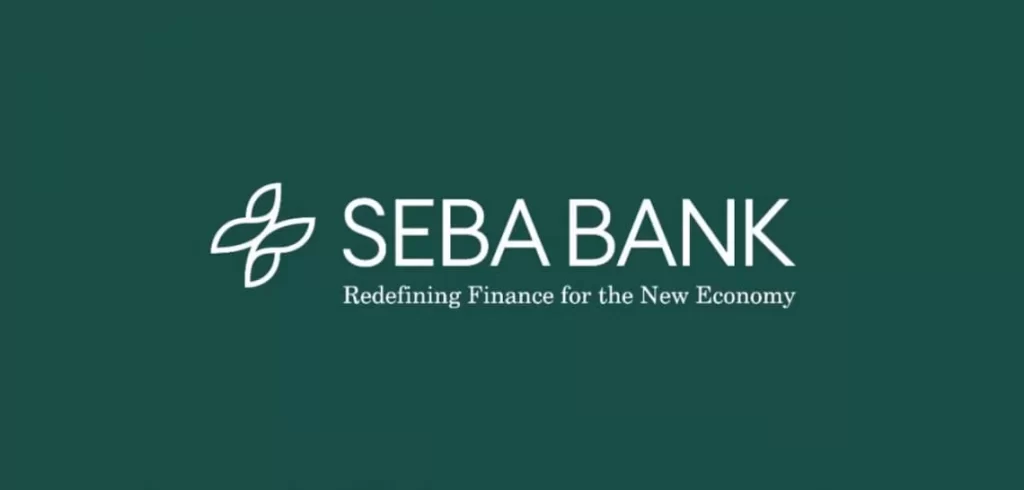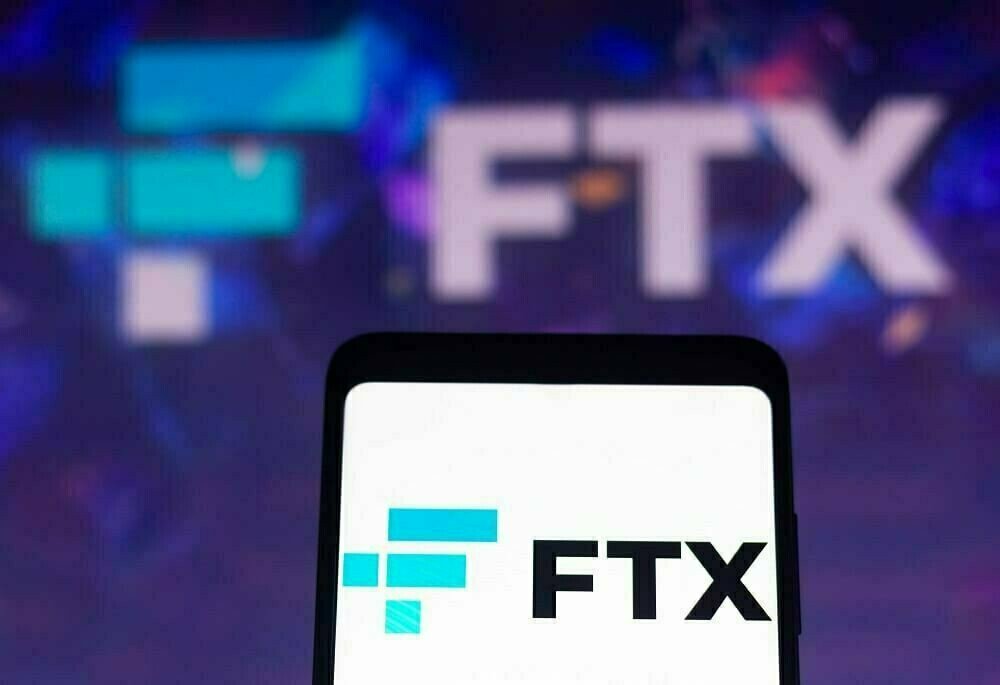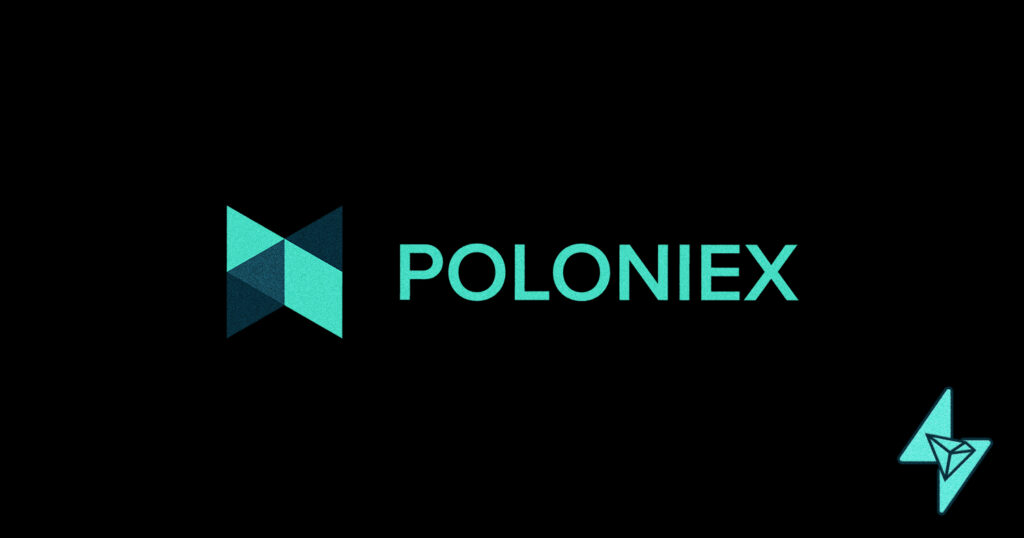Coinbase, a prominent cryptocurrency exchange, has disclosed a notable uptick in requests from law enforcement and government agencies, marking a 6% increase compared to the previous year, as indicated in the exchange’s annual transparency report.
This surge in requests was accompanied by a significant rise in the number of jurisdictions seeking information, which soared by 19.
Among the countries contributing to this surge, the United States, Germany, the United Kingdom, and Spain collectively accounted for a substantial 73% of the 13,079 agency requests directed towards Coinbase during the period spanning Q4 2022 to Q3 2023.
The United States stood out with a staggering 5,686 requests, primarily stemming from criminal enforcement agencies, reflecting a rise from the previous year’s 5,304 requests.
Germany ranked second with 1,906 requests, swapping places with the UK, which saw a modest decline to 1,401 requests. Spain secured the fourth position with 732 requests.
In contrast, Australia experienced a remarkable 262% surge in requests sent to Coinbase compared to the previous year, placing it sixth on the list with 453 requests.
Meanwhile, Ukraine’s requests more than tripled, and Portugal’s requests more than doubled, though they did not breach the top 15.
READ MORE: FTX Receives Approval to Sell $873 Million in Trust Assets to Repay Creditors
The transparency report covered the final quarter of 2022 and the first three quarters of 2023, encompassing various types of requests such as subpoenas, court orders, search warrants, and other formal legal processes.
Coinbase complied with these requests, offering customer information like names, recent login/logout IP addresses, and payment details, although it occasionally sought clarification from the requesting authorities to ensure compliance with financial regulations and other applicable laws.
Coinbase highlighted in a September blog post that 83% of “G20 members and major financial hubs” have enacted cryptocurrency regulations, including the European Union’s Markets in Crypto-Assets (MiCA) regulation.
This global regulatory landscape has prompted enforcement agencies worldwide to intensify efforts to combat crypto-related crimes by strengthening their investigative units to track potentially illicit crypto transactions.
It’s worth noting that Coinbase faced legal action in June, with the U.S. Securities and Exchange Commission alleging the sale of unregistered securities.
The exchange contested the SEC’s authority in the case through a court filing in October.
Coinbase, operating in over 100 countries, announced its expansion plans in September, targeting the European Union, United Kingdom, Canada, Brazil, Singapore, and Australia, where clear cryptocurrency rules are being established.
Swiss cryptocurrency-focused bank Seba has undergone a significant transformation, rebranding itself as Amina Bank AG.
This shift reflects the institution’s ambitious plans to expand its global trading services.
The decision to change its name was motivated by the need to distinguish itself from SEB Bank in Sweden.
Amina CEO Franz Bergmueller explained that both SEB Bank and SEBA Bank had mutually agreed to alter their names in 2023, leading to the birth of Amina.
The name “Amina” derives from “transamination,” a term associated with the transfer of compounds between elements.
This choice signifies Amina’s mission to unite various facets of traditional, digital, and cryptocurrency banking.
In contrast, Seba’s previous name was a nod to its founder, Sebastien Merillat, who has expressed his passion for technology.
READ MORE: Swiss Asset Manager Pando Asset Joins U.S. Bitcoin ETF Race as BlackRock Refines Model with SEC
Amina’s rebranding coincides with its aggressive global expansion efforts.
The bank recently secured a license from the Hong Kong Securities and Futures Commission, enabling it to offer cryptocurrency trading services in the region.
In 2022, it obtained financial services permission from the Abu Dhabi Global Market and established an office in Abu Dhabi.
Amina’s CEO outlined their vision for 2024, emphasizing the acceleration of growth in key strategic locations like Switzerland, Hong Kong, and Abu Dhabi, with a continued focus on Switzerland, Abu Dhabi, and the Asia-Pacific region, including Hong Kong and Singapore.
Despite the name change, existing clients of Amina Bank, formerly known as Seba Bank, can expect uninterrupted service as the transition will not affect ongoing operations.
Amina operates globally and provides clients with both traditional and cryptocurrency banking services.
Launched in 2018, Amina plays a significant role in the cryptocurrency ecosystem, facilitating the provision of crypto-related services by financial institutions.
In November 2023, Switzerland’s St.Galler Kantonalbank, one of the country’s largest banks, partnered with the institution, then operating under the Seba brand, to offer digital asset custody and brokerage services to its clients.
ARK Invest, the cryptocurrency investment firm led by prominent Bitcoin advocate Cathie Wood, made a significant investment move on November 29th, acquiring approximately $1.5 million worth of SoFi Technologies (SOFI) shares.
This strategic move occurred on the same day that SoFi Technologies made a surprising announcement, revealing its exit from the cryptocurrency market.
ARK Invest purchased a total of 200,275 SOFI shares on November 29th, earmarking them for inclusion in its ARK Fintech Innovation ETF (ARKF).
Based on the closing price of SOFI on that day, which stood at $7.35 per share according to TradingView data, the investment was valued at approximately $1.47 million.
SoFi Technologies officially confirmed its decision to terminate its cryptocurrency services by December 19, 2023, a move that garnered attention and speculation in the crypto community.
The company stated, “After careful consideration, we’ve made the decision to discontinue our crypto services by the end of this year.”
They encouraged their customers to migrate their crypto assets to the online crypto wallet provided by Blockchain.com.
Throughout the year, ARK Invest has been actively accumulating SoFi shares, amassing a total of 1,772,991 SOFI shares for ARKF.
READ MORE: Poloniex Announces Gradual Resumption of Services Following $100 Million Hack
This investment currently represents a value of around $13 million at current market prices.
SoFi’s stock has experienced notable volatility in 2023, reaching a peak of $11.45 in July, compared to its starting price of just $4.50 at the beginning of the year.
However, it gradually declined, falling below $7 in mid-November.
In addition to their investment in SoFi, ARK Invest also purchased 221,759 shares of Robinhood (HOOD) on the same day, November 29th.
Robinhood’s trading platform allows users to buy and trade cryptocurrencies like Bitcoin in the United States.
Interestingly, Robinhood unveiled its plans for expansion into the United Kingdom on November 30th, though it did not specify whether cryptocurrency offerings would be part of the expansion.
Simultaneously with these purchases, ARK Invest has continued to divest from Coinbase (COIN) stock.
On November 29th, they sold approximately 38,000 COIN shares from the ARKF ETF, amounting to nearly $5 million.
Despite these significant investment moves, ARK Invest has yet to provide a comment or response to inquiries from Cointelegraph regarding their strategy and rationale for these transactions.
Circle, the issuer of the USD Coin stablecoin, has firmly refuted allegations of illicit financing and connections to Tron founder Justin Sun.
In an open letter posted on Circle’s blog on November 30, Circle’s Chief Strategy Officer and Head of Public Policy, Dante Disparte, addressed U.S. Senators Elizabeth Warren and Sherrod Brown regarding these accusations made by a nonprofit watchdog group.
Disparte revealed that Circle had recently become aware of what they considered to be “false” claims made by the “Campaign for Accountability.”
He emphatically stated that Circle does not, either directly or indirectly, facilitate or finance any illicit actors such as Hamas.
Furthermore, Circle does not provide banking or financial services to Justin Sun, refuting any association with him.
The allegations that Circle facilitated significant fund flows to organizations like Hamas or Hezbollah were also vehemently denied.
Disparte argued that these accusations were based on unverified social media posts and clarified that only a minor amount, $160 in USDC, was transferred among illicit wallets, none of which had any connection to Circle.
READ MORE: Poloniex Announces Gradual Resumption of Services Following $100 Million Hack
Regarding Justin Sun, Disparte clarified that Circle had terminated all accounts held by him and his affiliated companies in February 2023.
Despite the lack of specific designation of Mr. Sun or his entities as Specially Designated Nationals by the U.S. government, Circle has severed its ties.
This open letter from Circle seems to be a response to a November 9 letter from the nonprofit ethics group Campaign for Accountability.
The latter had alleged that Circle had extensive ties to Justin Sun’s Tron Foundation and major Wall Street investors, with Sun’s cross-chain protocol, SunSwap, being used for potential money laundering.
In recent times, concerns have risen about the use of cryptocurrencies in financing terrorism, particularly since the Israeli-Hamas conflict in October.
Initially, reports suggested that over $130 million in crypto had been donated to terrorist organizations.
However, The Wall Street Journal later corrected its figures, indicating that $12 million in cryptocurrency “may have been” sent to these organizations.
In summary, Circle vehemently denies any involvement in illicit financing or ties to Justin Sun, as alleged by a nonprofit watchdog group.
They emphasize their commitment to adhering to legal and regulatory standards in the cryptocurrency space amidst ongoing concerns about crypto’s potential use in financing terrorism.
In November 2023, the cryptocurrency industry experienced a significant surge in cybercriminal activity, marking it as one of the most alarming months for crypto-related thefts, scams, and exploits.
According to a report by a blockchain security firm, CertiK, malicious actors managed to amass a staggering $363 million during this month.
The primary contributors to this record-breaking figure were exploits, flash loans, and exit scams. Exploits alone accounted for approximately $316.4 million in losses, while flash loans inflicted $45.5 million in damages.
Additionally, victims fell prey to various exit scams, resulting in a loss of $1.1 million, as reported by CertiK on November 30 via their X (formerly Twitter) post.
Notable incidents during November included the devastating exploits on Poloniex and HTX/Heco Bridge, which led to losses of $131.4 million and $113.3 million, respectively.
A single individual also suffered a massive $27 million loss due to a phishing attack. Furthermore, the $45 million KyberSwap attack dominated the flash loan attack category for the month.
This surge in crypto-related crimes surpassed the previous record of $329 million, established in September, primarily due to the $200 million Mixin Network attack.
READ MORE: FTX Receives Approval to Sell $873 Million in Trust Assets to Repay Creditors
Cumulatively, as of the end of November 2023, the crypto industry has witnessed a total loss of approximately $1.7 billion attributed to exploits, exit scams, and flash loan attacks.
While this is a substantial figure, it accounts for only 54% of the losses incurred during the entirety of 2022, which amounted to $3.7 billion.
The year 2021 also saw substantial losses of $1.7 billion, according to CertiK’s data.
Ronghui Gu, one of CertiK’s founders, emphasized that a standard smart contract audit is no longer sufficient in today’s evolving threat landscape.
Cybercriminals are continuously finding innovative ways to exploit vulnerabilities, with tactics such as SIM-swapping and multisignature vulnerabilities being among the latest security pitfalls exploited.
These frequent and high-profile exploits are causing concerns within the crypto community, hindering adoption.
Christian Seifert, a researcher at Forta Network, stated that these incidents are akin to a traditional bank getting robbed, which could deter potential users from entering the Web3 space.
Jerry Peng, a research analyst at Web3 analytics firm 0xScope, concurred, noting that such events are scaring away individuals who were once interested in exploring the world of Web3.
A recent study conducted by CoinGecko has revealed a startling trend in the world of blockchain games. Over the past five years, more than three-quarters of blockchain games that were launched have met their demise.
Out of a total of 2,817 games introduced between 2018 and 2023, only 690 of them continue to maintain a somewhat active player base.
CoinGecko classifies a “failed” Web3 game as one where the 14-day moving average of active users drops by 99% or more from its peak.
The year 2021 marked a significant milestone as it saw the highest number of blockchain games launched in a single year, with a staggering 738 games making their debut.
However, the following year, plagued by major crypto collapses, witnessed the highest number of games fizzling out, with 742 failing within that single year.
This grim statistic paints a rather bleak picture, suggesting an average failure rate of around 80% for Web3 games in any given year since 2018.
READ MORE: Save the Children’s Crypto Donation Campaign Surpasses $7.6 Million
Interestingly, CoinGecko observed a correlation between the failure rate of these games and the overall state of the cryptocurrency market.
Years with lower failure rates tended to align with the tail end of bull markets, while years with higher failure rates typically occurred at the outset of bear market cycles.
Notably, some early pioneers in the Web3 gaming space, like CryptoKitties, which garnered considerable hype in late 2017, have seen their adoption dwindle over time.
In contrast, games like Decentraland, The Sandbox, and Axie Infinity, which launched in the earlier years, continue to enjoy widespread usage.
According to recent data, Alien Worlds, Splinterlands, and Planet IX have boasted the three highest average unique active wallets between January 1 and April 22, 2023, according to CoinGecko.
While 2022 marked a peak in the number of failed games, 2023 has shown signs of a slowdown in this trend, with only 507 failed projects as of November 27.
CoinGecko suggests that this lower failure rate could signify a potential stabilization in the state of Web3 gaming, hinting at the resilience and adaptability of the industry in the face of challenges.
Bankrupt cryptocurrency exchange FTX has received approval to sell approximately $873 million worth of trust assets as part of its efforts to repay creditors affected by its collapse in 2022.
The decision was announced in a filing made on November 29th in a Delaware bankruptcy court.
The assets to be sold comprise FTX’s holdings in various trusts issued by crypto asset manager Grayscale Investments and custody service provider Bitwise.
Grayscale Investments’ trusts are valued at $807 million, while Bitwise’s assets are valued at $66 million.
It’s important to note that the $744 million valuation mentioned in the court document is accurate as of October 25, 2023, and the assets have appreciated in value since then.
This approval follows a motion filed by FTX debtors on November 3rd, requesting the sale of six cryptocurrency trusts, including the Grayscale Bitcoin Trust (GBTC), Grayscale Ethereum Trust (ETHE), and Bitwise 10 Crypto Index Fund.
READ MORE: Bank for International Settlements Unveils Groundbreaking CBDC Privacy Protocols
FTX currently holds more than 22 million units of GBTC, valued at $691 million, and 6.3 million shares of ETHE, valued at approximately $106 million.
Additionally, FTX can now sell Grayscale’s Ethereum Classic Trust, Litecoin Trust, and Digital Large Cap Trust to generate funds for affected FTX customers.
The exchange’s administrators, led by John J. Ray III, have been diligently working to recover assets since the collapse of Sam Bankman-Fried’s former cryptocurrency empire in November 2022.
To date, approximately $7 billion in assets have been recovered, with nearly half of that amount coming from cryptocurrencies, totaling $3.4 billion.
In June, FTX’s debtors estimated that the total misappropriated customer assets amounted to $8.7 billion.
Meanwhile, Sam Bankman-Fried, the former head of FTX, was convicted on seven fraud-related charges on November 2nd and is scheduled to be sentenced on March 28, 2024.
He remains in custody at Brooklyn’s Metropolitan Detention Center and has recently bartered four mackerels for a haircut while awaiting his legal proceedings.
The Chicago Mercantile Exchange (CME) Bitcoin futures market demonstrated a surging demand from institutional investors, surpassing Binance’s BTC futures market in terms of size.
This development underscores a growing confidence among these investors in Bitcoin’s potential to breach the $40,000 mark in the near future.
CME currently boasts a Bitcoin futures open interest of $4.35 billion, a level not seen since November 2021 when Bitcoin reached its all-time high of $69,000.
This significant uptick in interest is seen as a clear indicator of heightened enthusiasm. However, the question that looms is whether this surge is substantial enough to justify further price gains.
The remarkable 125% increase in CME’s BTC futures open interest, soaring from $1.93 billion in mid-October, is closely tied to the anticipation surrounding the approval of a spot Bitcoin exchange-traded fund (ETF).
It’s important to note that this movement doesn’t necessarily correlate directly with market makers’ or issuers’ actions. Cryptocurrency analyst JJcycles raised this theory in a social media post on November 26.
Institutional investors have alternative options to navigate the high costs associated with futures contracts.
They can consider CME Bitcoin options, which demand less capital while offering similar leveraged long exposure.
Furthermore, regulated ETF and exchange-traded notes (ETN) trading in regions like Canada, Brazil, and Europe present viable alternatives.
It might appear naive to assume that the world’s largest asset managers would take substantial risks with derivatives contracts contingent on a decision by the U.S. Securities and Exchange Commission, expected only in mid-January.
Nonetheless, the undeniable growth in CME Bitcoin futures open interest serves as concrete evidence of institutional investors increasingly turning their attention to the cryptocurrency market.
READ MORE: Binance Takes Regulatory Turn
CME’s Bitcoin futures activity witnessed another noteworthy development on November 28. The annualized premium for CME Bitcoin futures, typically at 5% to 10% in neutral markets, spiked from 15% to 34%, eventually stabilizing at 23% by the end of the day.
Such a basis rate exceeding 20% indicates substantial optimism, suggesting a willingness among buyers to pay a premium for leveraged long positions.
Currently, the metric stands at 14%, indicating that whatever drove this unusual movement is no longer a factor.
Notably, during that eight-hour period on November 28, Bitcoin’s price rose from $37,100 to $38,200.
However, discerning whether this surge was prompted by the spot market or futures contracts is challenging, as arbitrage between the two occurs in milliseconds.
Instead of fixating on intraday price movements, traders should refer to BTC option market data for confirmation of institutional investor interest.
The data on the 30-day BTC options 25% delta skew, consistently remaining below the -7% threshold over the past month, supports the bullish sentiment among institutional investors using CME Bitcoin futures.
This casts doubts on the theory of whales accumulating assets ahead of a potential spot ETF approval. In essence, derivatives metrics do not indicate excessive short-term optimism.
While a spot ETF approval remains a driving force, with Bitcoin’s price hovering near $38,000, it seems that bulls will continue to challenge resistance levels.
However, if market makers were overwhelmingly confident in an SEC approval, the BTC options delta skew would likely be much lower.
Cryptocurrency exchange Poloniex, which recently fell victim to a $100-million hack on November 10, has announced plans to resume its withdrawal and deposit services.
The announcement was made via the platform X (formerly Twitter) on November 29.
According to Poloniex, the phased resumption of services will begin on November 30 at 2:00 am UTC, with a strong emphasis on prioritizing user fund safety.
The first step in this process involves restoring Tron deposits and withdrawals, followed by Bitcoin, Ether, Tether, and other cryptocurrencies over the course of the next two weeks.
In addition to reestablishing withdrawals, Poloniex is actively working on introducing new cryptocurrency listings, which will be available soon.
Users are advised to make use of the updated deposit addresses once they become accessible, as failure to do so will result in funds not being credited.
READ MORE: Spain Implements New Crypto Reporting Requirement for Residents Holding Assets Abroad
Poloniex has also announced an airdrop campaign for users who maintain their assets on the platform.
Developed in collaboration with HTX DAO, this campaign is scheduled to launch in December, with asset balance calculations starting on December 1.
The tokens for the airdrop will be sourced from a premium project about to be listed, with specific details to be unveiled in December.
It’s noteworthy that Poloniex is not only focusing on the resumption of services but also on security improvements following the recent hack.
The exchange is taking measures to reassure its user base and ensure the safety of their assets.
The announcement also highlighted the repeated hacks experienced by Sun-linked crypto platforms, including HTX and Poloniex, over the past two months.
These incidents resulted in a combined loss of nearly $240 million.
Despite the challenges, Poloniex is committed to maintaining its services and enhancing security measures to safeguard user assets in the ever-evolving world of cryptocurrency.
Standard Chartered has made a bold prediction that Bitcoin could surge to $100,000 within the next year, driven by the potential launch of exchange-traded funds (ETFs) sooner than expected.
In a research note released on November 28, the banking giant reaffirmed its optimistic price targets for Bitcoin.
The report suggests that Bitcoin may reach a six-figure price tag by the end of 2024, a significant jump from its current trading value of $37,700.
This bullish outlook is primarily based on the possible approval of Bitcoin spot price ETFs in the United States.
Geoff Kenrick, Head of EM FX Research, West, and Crypto Research at Standard Chartered, stated, “We now expect more price upside to materialize before the halving than we previously did, specifically via the earlier-than-expected introduction of US spot ETFs.”
This development raises the prospect of Bitcoin reaching the $100,000 mark before the end of 2024.
Standard Chartered’s positive stance on Bitcoin’s future performance builds upon its earlier optimistic outlook.
READ MORE: Bitcoin Holds Strong at $38,000 Amid Speculation of Price Surges and Fed’s Powell Speech
In July, the bank pointed to the decreasing availability of Bitcoin supply as a factor that could drive prices significantly higher. At that time, Kenrick predicted that Bitcoin could hit $50,000 by the end of 2023.
Additionally, he noted that miners might start hoarding more of their Bitcoin stocks due to an increasing hash rate and the upcoming block subsidy halving, which will reduce the amount of Bitcoin earned per block by 50%.
This increased profitability for miners would lead to reduced net Bitcoin supply, pushing prices even higher.
The spotlight is currently on the ETF narrative, with derivatives premiums rising and growing anticipation of a potential ETF approval in January.
Bitcoin’s price trajectory has been highly responsive to news related to ETFs, with rapid gains in November as investors anticipated regulatory approval before the January window.
However, there are concerns about large-volume investors selling off their holdings once the green light is given, potentially leading to a “buy the rumor, sell the news” scenario.
This situation could result in losses for latecomers to the market. Nonetheless, Standard Chartered remains confident in Bitcoin’s ability to reach new price milestones, especially if ETFs become a reality sooner than expected.













